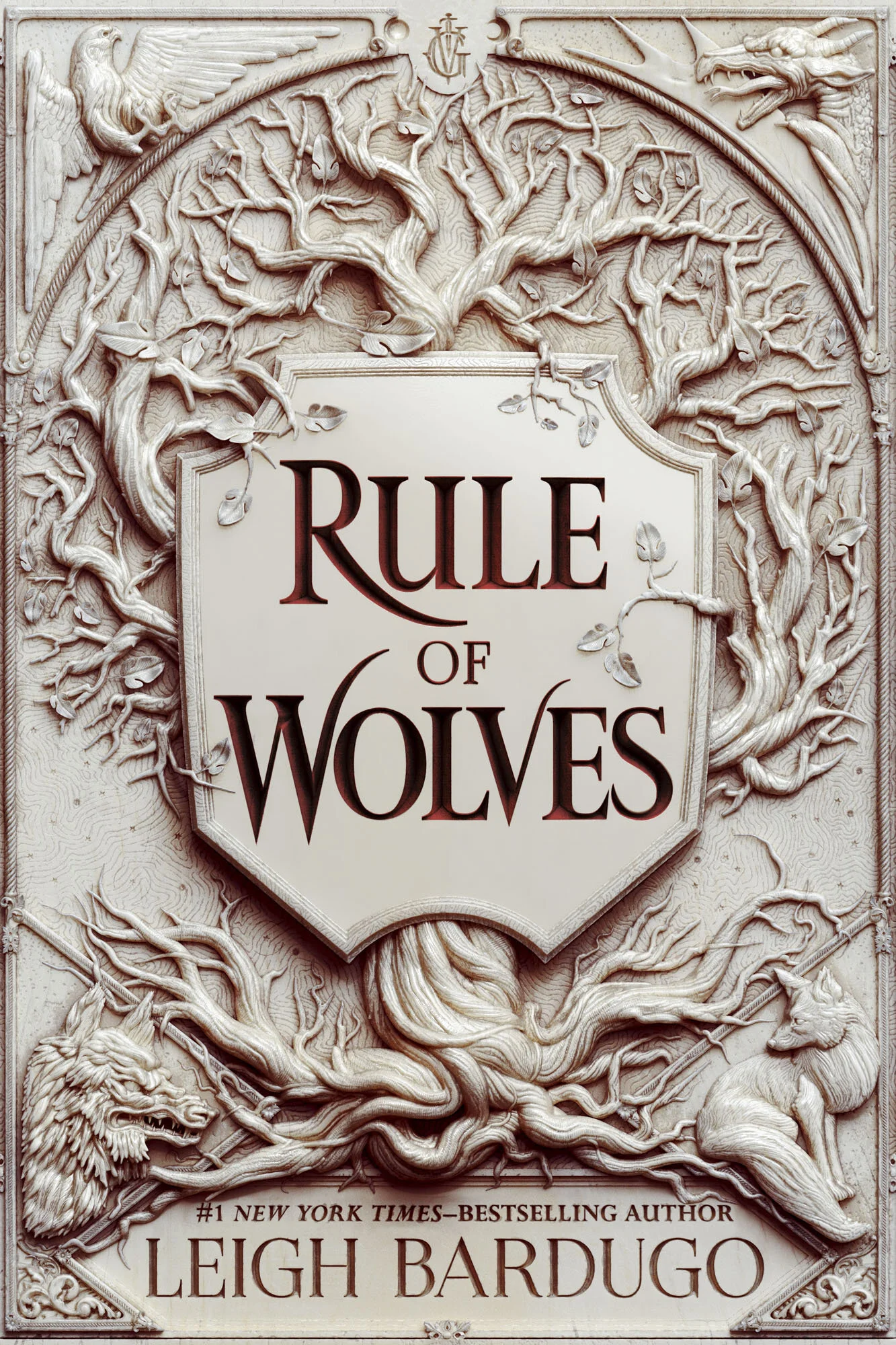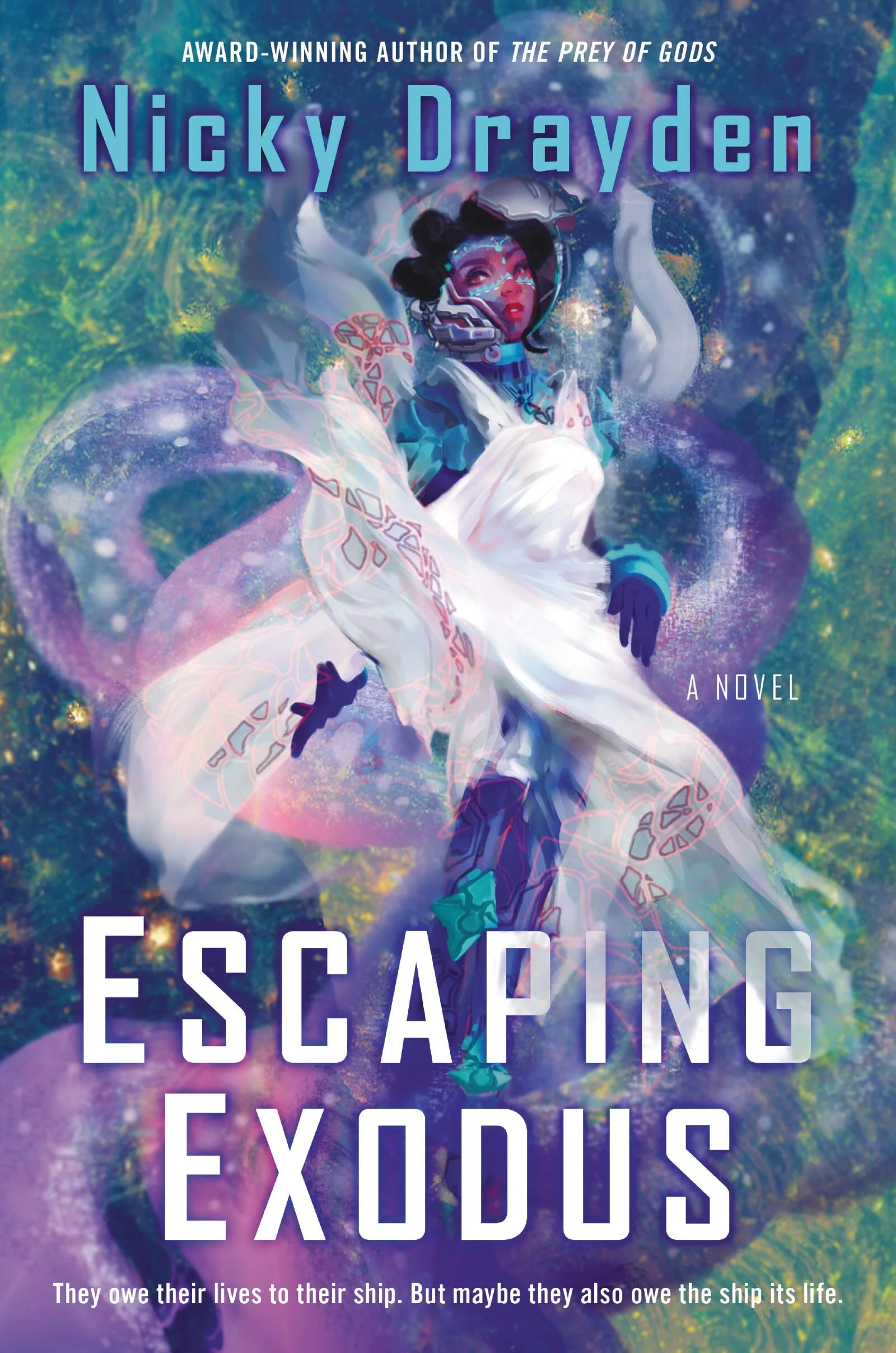Review: Rule of Wolves by Leigh Bardugo
I had a tremendously good time reading this book. There are some who do not like a long set of interlocking series, but it might be my very favorite thing.
Reading Rule of Wolves was something I put off for a little while, mostly because I knew once I started this book, I was going to feel like I was racing towards the end and be unable to stop thinking about the book until I finished it. I certainly did end up feeling that way; I needed to get to the end. I did really enjoy the entirety of the journey through that desire to rush to the conclusion, especially in such a massive book, which could make the middle a slog, but Bardugo kept my attention throughout the novel.
I am currently not able to write this without spoilers. I shall be spoiling everything. Everything.
I have a few parts of this book that I didn't love, even though I loved the story overall. I am still grumpy about the decision to bring the Darkling back. I think bringing back the dead bad guy is almost always not the most interesting choice that the narrative can make. I much prefer to see similar ideas coming back in a different way, to see how people react to a new incarnation of the ideology being critiqued, than to have that same ideology in the same form. I also thought the Darkling was underutilized in this book. His impact on the story was kind of anticlimatic for me until literally the very end, where it felt very predictable and like he was there just to let us have a next book. I don't like the character generally, but if he is going to be there, I want his impact on the story to match how much other people are talking about him.
The other thing I didn't like is sort of related. I felt like parts of this book retconned Ruin and Rising. I don't think it was egregious, but I think the way the epilogue frames the future does not match up with this book at all. The death that happens in this book and Alina being called away from Karemsen, and her meeting with the Darkling all seemed incongruous with the epilogue. Between Ruin and Rising and Rule of Wolves is less than five years (I think even less than that), and I just don't think the future presented there matches where the story went. That epilogue did kind of allow for there to be no involvement of Alina outside the once-a-year meetings, which I understand why Bargudo wouldn't stick to. I completely understand that the epilogue was written before she knew she would be able to expand this world so much. But I was still disappointed to feel like I couldn't trust that epilogue; I think it can be argued that technically nothing is retconned, but it seems pretty obvious that the spirit of what was written does go against what has gone on in this douology.
That was a lot of time spent on the things I didn't like in a book I am rating five stars; I do see how that is a bit odd. I think there is nothing wrong with being able to critique things you love, but I will now move into the effusive praise section.
I loved the way the book opened with Queen Makhi's story. It was such a wonderful way to build tension and assure that the goings-on in Shu Han were very front of mind for the reader. I really found the conclusion there interesting, and I especially liked that Mayu was choosing to stay in Shu Han and work for what she wants there and that everyone's issues weren't solved by seeking refuge in Ravka. I also would have loved more scenes within Shu Han, but I thought the amount chosen with well with the story. I just could have read a whole book about this matriarchial monarchy and their murderous ways.
I was so satisfied with the way Bardugo wrote Nina's story. I was so anxious to see Nina return to Ravka, to see the reunion of her with Zoya, and I was so surprised by the way this was handled. I loved that her story ends with her carving out a life for herself right in the heart of where she can do the most good. I thought I would be upset if Nina didn't return to Ravka, but I was so happy to see Nina able to fulfill her quests of mercy and protecting Grisha while also building a life in a place she clearly loves even though it needs a lot of work.
I need to seek out reviews of this book by trans folk to see what they thought of this book. I had an inkling in the first book that maybe Hanne was nonbinary, but pretty early in this book, it becomes obvious that Hanne is not just unhappy with the social constraints of femininity but that Hanna is not a woman. Hanne seems to be living the initial experiences of coming out as a trans man, which is something that tends to be talked about in fantasy worlds where people have magic that changes the way people look, and it was cool to have an author, actually translate that to the page. Watching Nina realize this is interesting, I think the reader is meant to be able to understand the situation before Nina, and it adds a very interesting layer to this story. I really loved the big twist that Hanne is involved with. I literally gasped out loud and explained when I realized what had happened. And when we got a full account of the situation, I was even more invested. I also liked the hope Hanne's story left Fjerda in.
I loved getting cameos from Kaz, Jesper, Wylan, and Inej. As soon as the Crows start popping up, it became very apparent that we would get more Grishaverse books, which I have already indicated I love a long series, so I was happy about this. I thought all the Crows were used well; their places in life make sense with how Crooked Kingdom left off, it was lovely to actually get to see them, and I am excited to get the continuation of their stories the way we did with Nina.
I, like everyone, love Nikolai. I really loved and was very surprised by his narrative arc in this book. I was not expecting him to relinquish power even though the reader is repeatedly given clues that they could be coming. I have thought in the past the Bardugo is too heavy-handed in her foreshadowing, but I very much did not feel that way about this book. I especially liked that Nikolai had no genetic tie to Ravka, and that was not the reason he chose to abdicate, he is still very much tied to Ravka, and he sought to make the best decision for the countries future. I am always interested in how authors will handle the will of the people or the idea of democracy in fantasy worlds with a monarchy, especially because Bardugo is pulling a lot from World War 2, which is obviously after many countries had switched to a different form of government.
But back to Nikolai proper. I thought his journey was excellent. He was still able to surprise me a few times, especially at the wedding. I really loved watching him figure out what he wants and the multiple paths to get it. I especially loved watching him learn how to tell Zoya how he felt about her. His journey with accepting the literal demon inside of him was also very well done. The escalation was perfectly handled, and I loved it.
David and Genya's story in this book was obviously a source of my retconning frustration but. Aside from that, I thought this storyline was very strong. I was so disappointed in myself that I didn't see David's death coming. We just had a deliciously happy wedding; of course, tragedy was just around the corner; that is how narratives work. I was absolutely devastated for Genya; I sobbed. Before the death, I had cried three times and all because of Genya. It is always a balance of which characters to kill off, you have to kill people readers have emotional attachments to, but they need to be done with their contributions to the plot. I really should have seen this coming.
Finally, on to Zoya's story. I said in my hot mess of a review for the last book that I was dying for a Grisha Queen, and oh boy, did Bardugo deliver on that. I really like the way she did it. We all knew Zoya was end game for the throne, but she completely flipped that on its head. She wasn't the Queen because she married Nikolai; she became the Queen through her own strengths and some public pressure from Nikolai and the people of Ravka. I have read a few reviews saying that they were surprised that Zoya was Suli in this book, which was something talked about in the last book. I totally understand critiquing whether or not you liked the way Bardugo handled her being biracial, especially from readers who are South Asian or other people of color, but that wasn't brand new information to this book.
I really loved that Bardugo was able to have Zoya confront her hurt and be openly vulnerable with the people she loves and that not compromise her badass nature or her sharp personality. Zoya's story had her ability to be open and work on healing while not diminishing her in any way or majorly changing her character. I really loved this. So often, the hardened character is treated like they do not have emotions and like they did not experience trauma. So much of this book was spent face to face with the trauma of the past, and we got to watch the ways Zoya was processing that. I thought it was fabulously done.
I am sure I could type more of my thoughts, I am sure I will want to reread all of this before the next Grishaverse novel (which will hopefully come after the next Alex Stern?), but I am going to wrap it up here. I gave this book five stars! I really liked this installation in the series of series, and the things I didn't like I can live with and understand their narrative reasons for showing up. If you want to continue on reading Grishaverse novels, I surely recommend this one; though my review was so full of spoilers, I hope no one read this review who hasn't already read the book. Feel free to leave me a comment with your thoughts!






